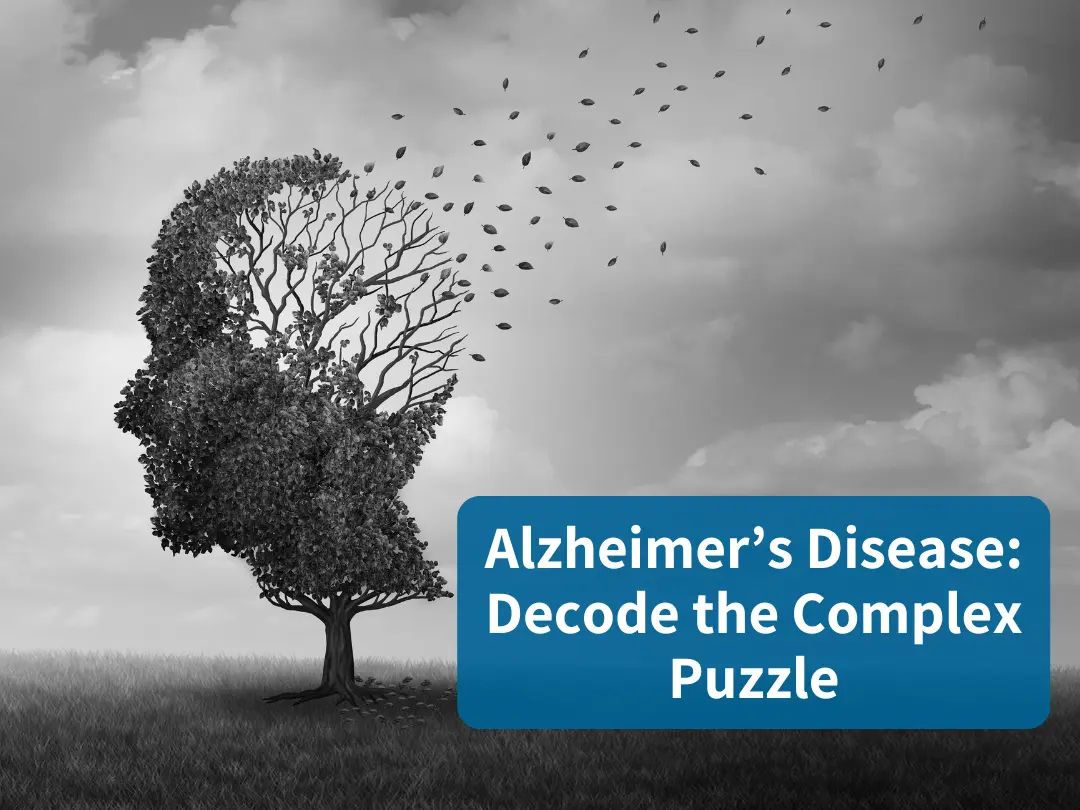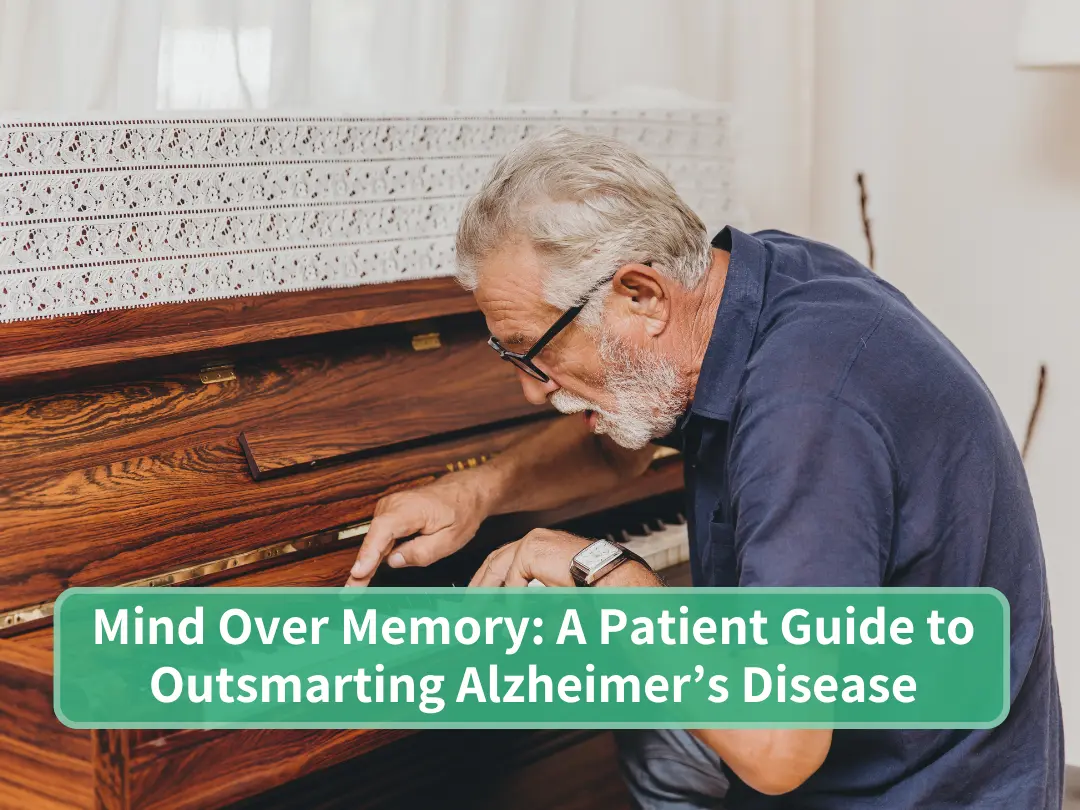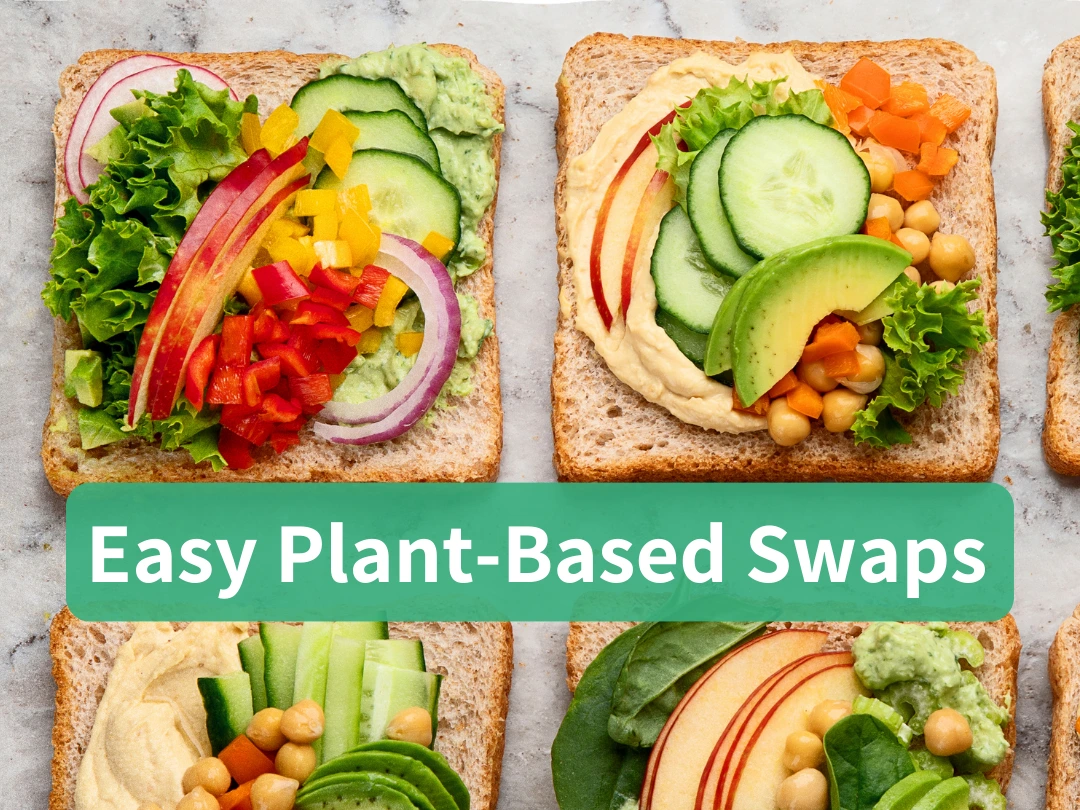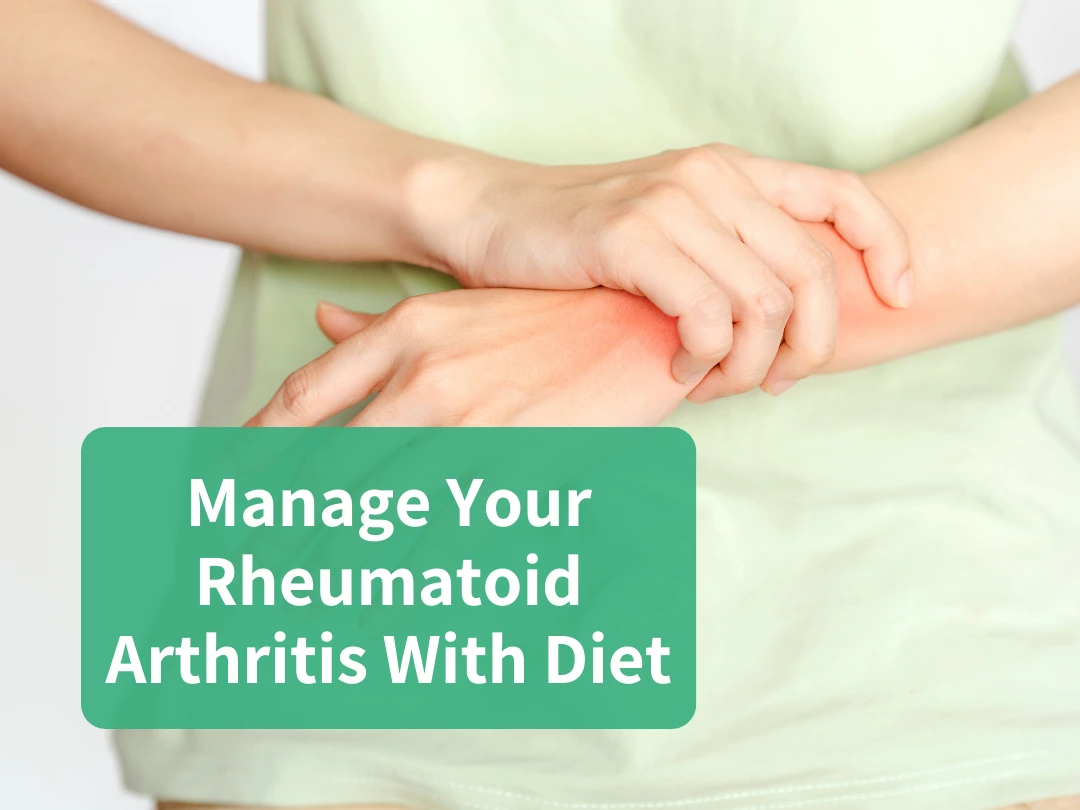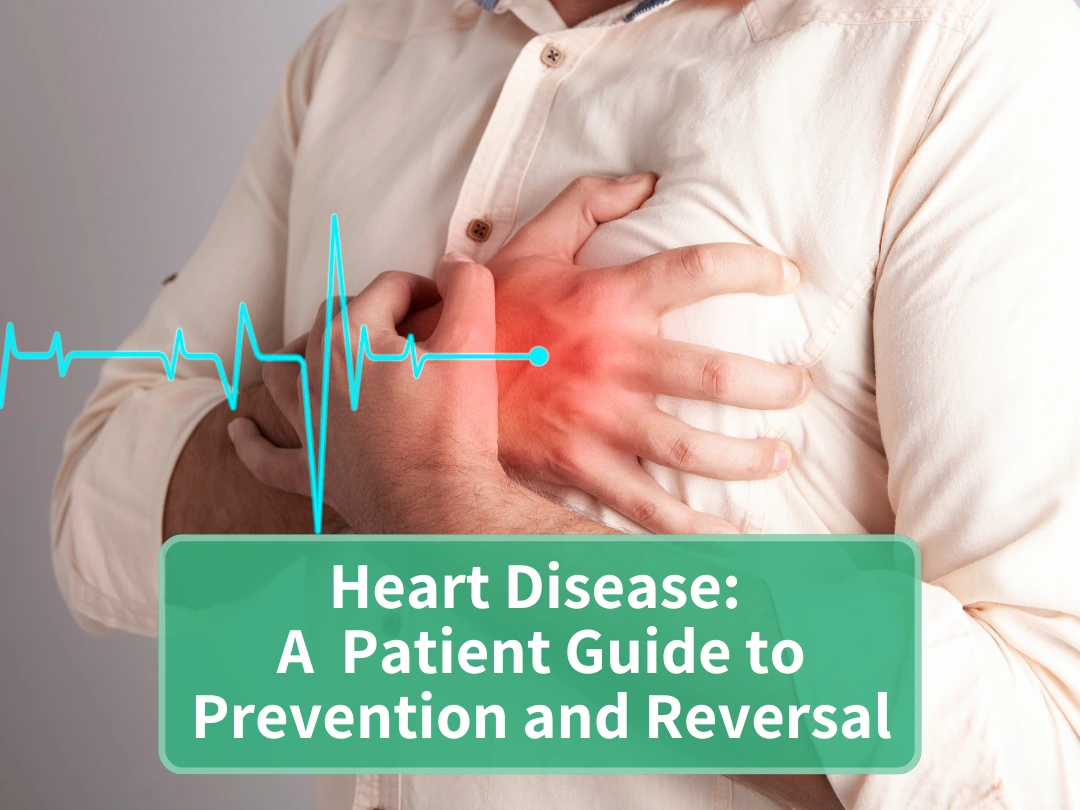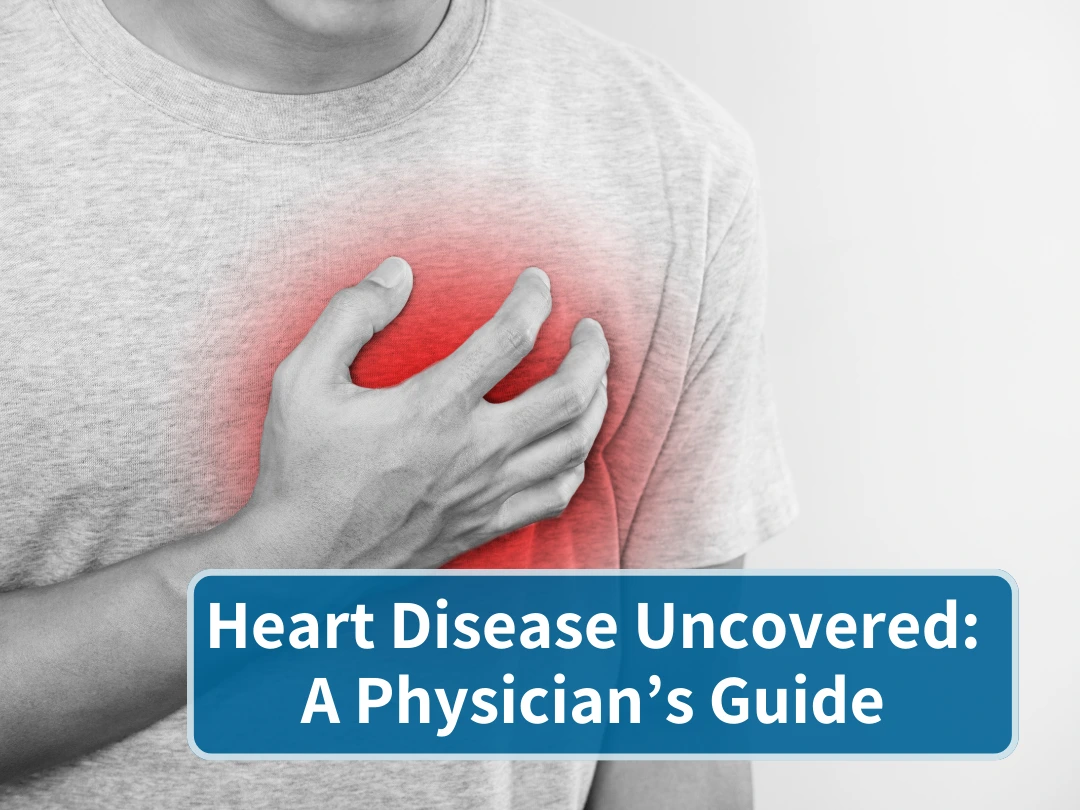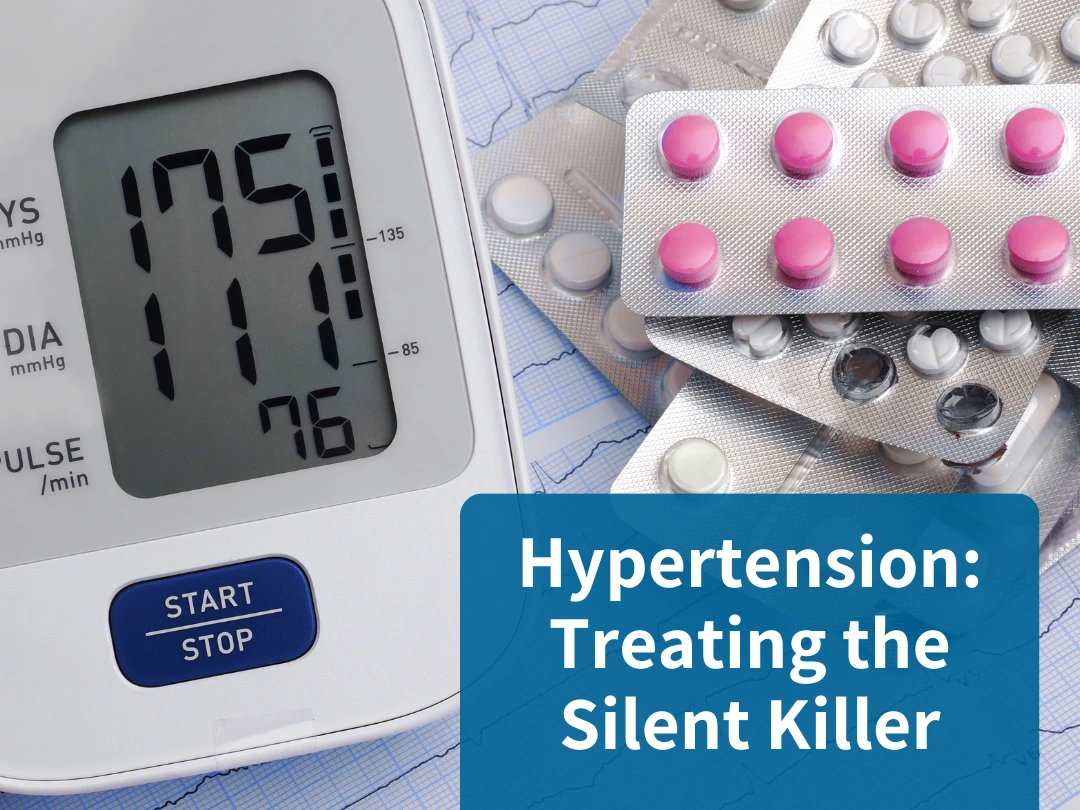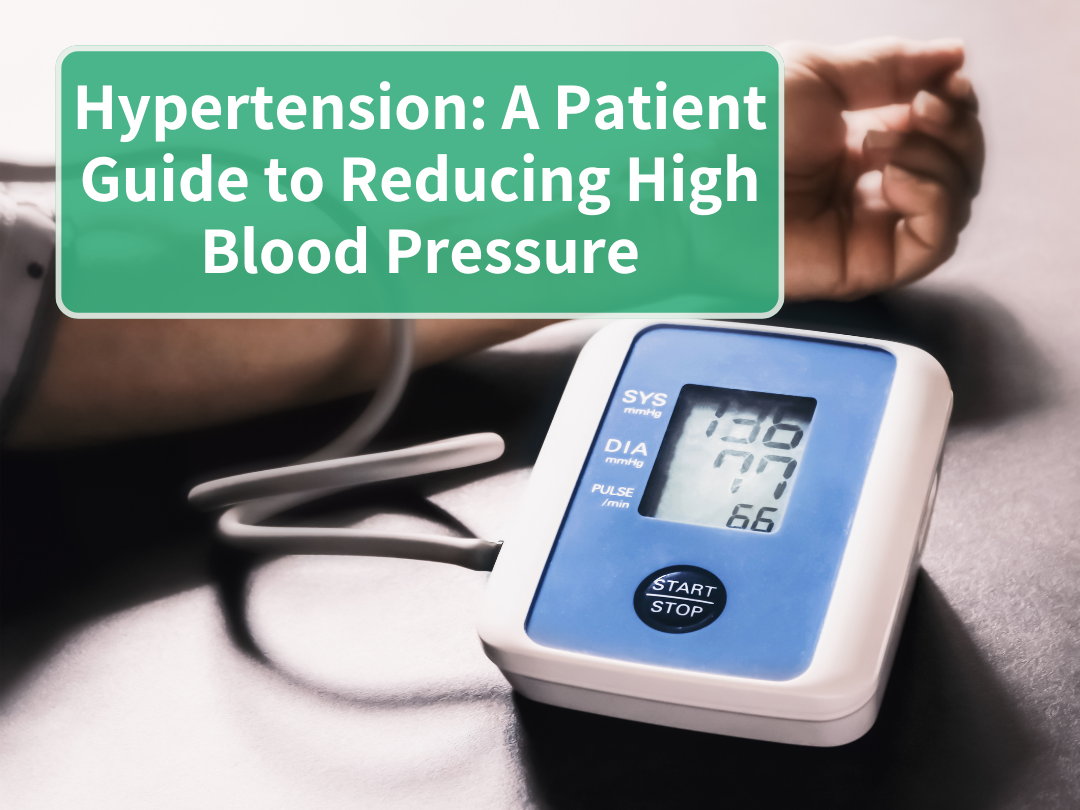
Coffee: Healthy or Unhealthy?
Today I’m going to ‘spill the beans’ on a hot topic. It would be an understatement to say that many people love drinking it. In fact, it is one of the most popular beverages on the planet with an estimate of 2 billion cups consumed daily (1). Yes, you’ve guessed it, we’re talking about coffee. This drink is loved for its energizing properties and bittersweet flavour. But, does it have any detrimental effects on our health? Or, is it actually health-promoting? Should we limit our intake? And, are there any groups of people who should avoid it entirely? In this article, we’ll explore these questions and more. If you prefer, you can watch the short, fun video we made on this topic instead.
October 1st is World Coffee Day, so we thought that it’s worthwhile taking a look at the science behind this popular beverage. Luckily for us, a review article was published in 2020 (2) in the prestigious New England Journal of Medicine which can help us answer the big question: Is coffee healthy or harmful? Well, coffee and its components influence different parts of the body. Let’s start by looking at what the paper has to say about the brain.
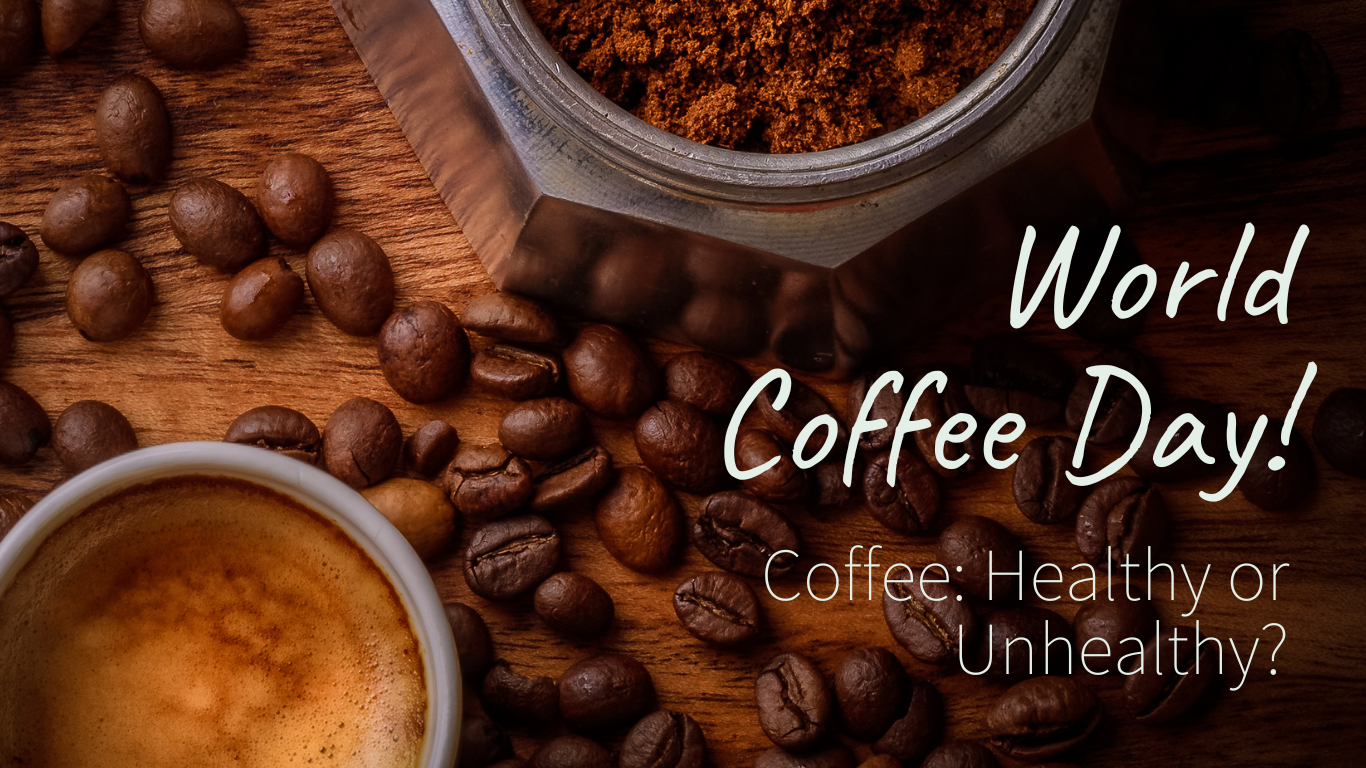
How does caffeine affect the brain?
Caffeine has biochemical similarities to the drowsiness-inducing molecule adenosine. By binding to and blocking its receptors, caffeine can reduce fatigue, increase alertness, and reduce reaction time. It can also improve vigilance when undertaking tasks of long duration that provide limited stimulation, such as working on an assembly line, long-distance driving, and flying aircraft. However, caffeine can’t compensate for the decline in performance after long-term sleep deprivation, although it may reduce the risk of depression, suicide and Parkinson’s disease.
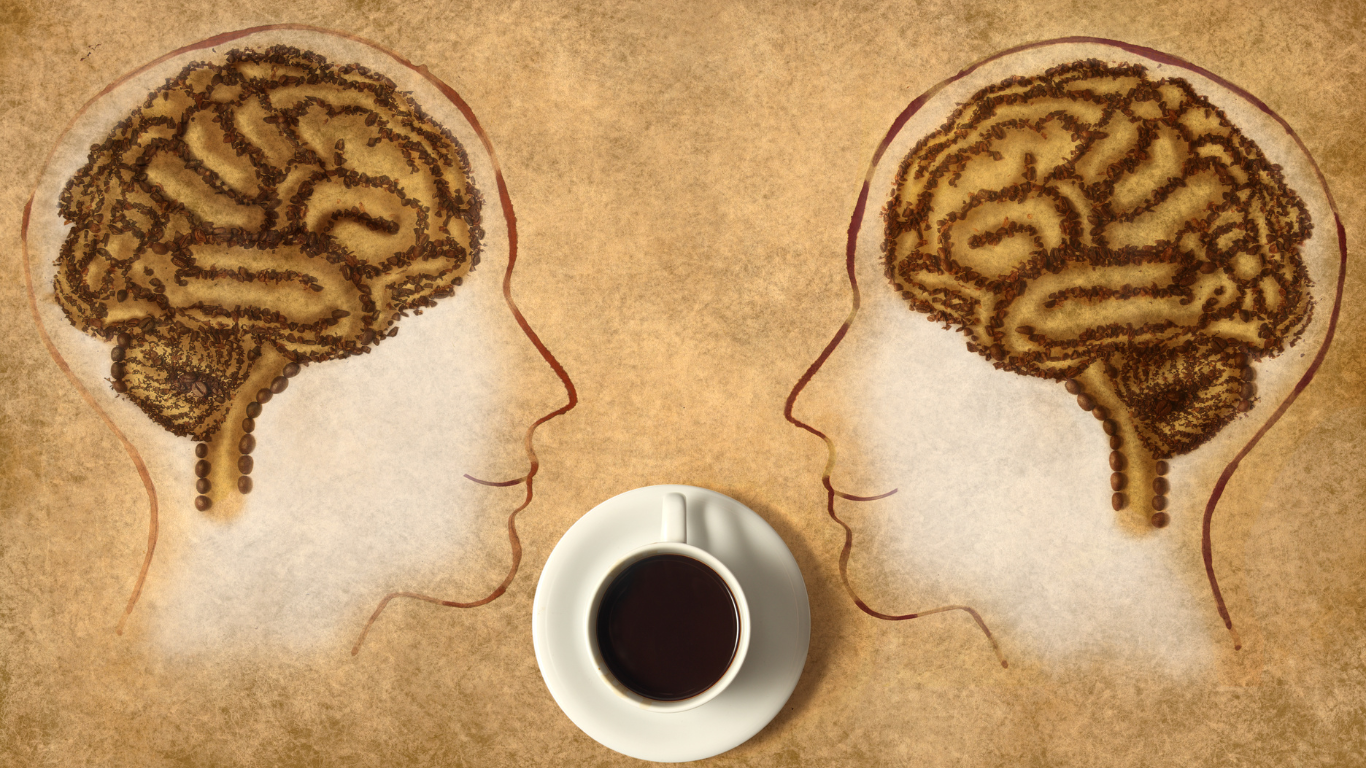
What affect does drinking coffee have on the heart?
Love at first sight might give you heart palpitations, but drinking coffee, on the other hand, does not raise blood pressure levels even in people with hypertension. Interestingly though, a compound called cafestol which is found in unfiltered coffee, such as the french press version, raises LDL cholesterol which can lead to an estimated 11% higher risk of major cardiovascular events. Therefore, for those with coronary artery disease or elevated LDL cholesterol levels, it is advisable to stick to filtered coffee which has lower concentrations of diterpenes because the compounds do not readily pass through filter paper (X). In general, coffee consumption is associated with a reduced risk of cardiovascular diseases, with the lowest risk associated with consumption of 3 to 5 cups per day.
How does coffee influence cancer?
There is strong evidence that consumption of coffee is not associated with an increased incidence of cancer or an increased rate of death from cancer. Coffee is actually associated with a reduced risk of skin, breast, prostate and endometrial cancer and hepatocellular carcinoma. It can also lower the risks of fibrosis and cirrhosis, gallstones and gallbladder cancer.
What about caffeine and metabolism?
Caffeine intake can lead to an increase in energy expenditure and has been associated with slightly less long-term weight gain. Some evidence supports a modest beneficial effect on body fat. Most importantly, habitual coffee consumption has been consistently associated with a reduced risk of type 2 diabetes in a dose–response relationship.
It’s worth noting that various factors contribute to our coffee sensitivity including genetics, age and medication (3). Caffeine is gradually removed from our system by an enzyme within the liver. The rate at which we metabolise caffeine varies greatly between individuals. This explains why some people get the jitters or feel ‘wired’ for hours after drinking it, whilst others feel back to normal after an hour or two.
Therefore, the time of day when you drink coffee is important and can affect your sleep quality especially if you drink it in the afternoons or evenings. On average, it takes 6 – 7 hours to remove half of the caffeine from your system (the ‘half life’). Even 12 hours after drinking it, ¼ of the caffeine still remains in your system. So, if you drink a coffee at noon, a quarter of the caffeine will still be in your system at midnight. As a leading sleep expert, Professor Matthew Walker, points out, “Drinking just one dose of caffeine in the evening can decrease the amount of deep sleep by 20%.” (4). Therefore, to benefit your sleep quality, he recommends consuming caffeinated drinks before noon or switching to decaffeinated coffee and tea.
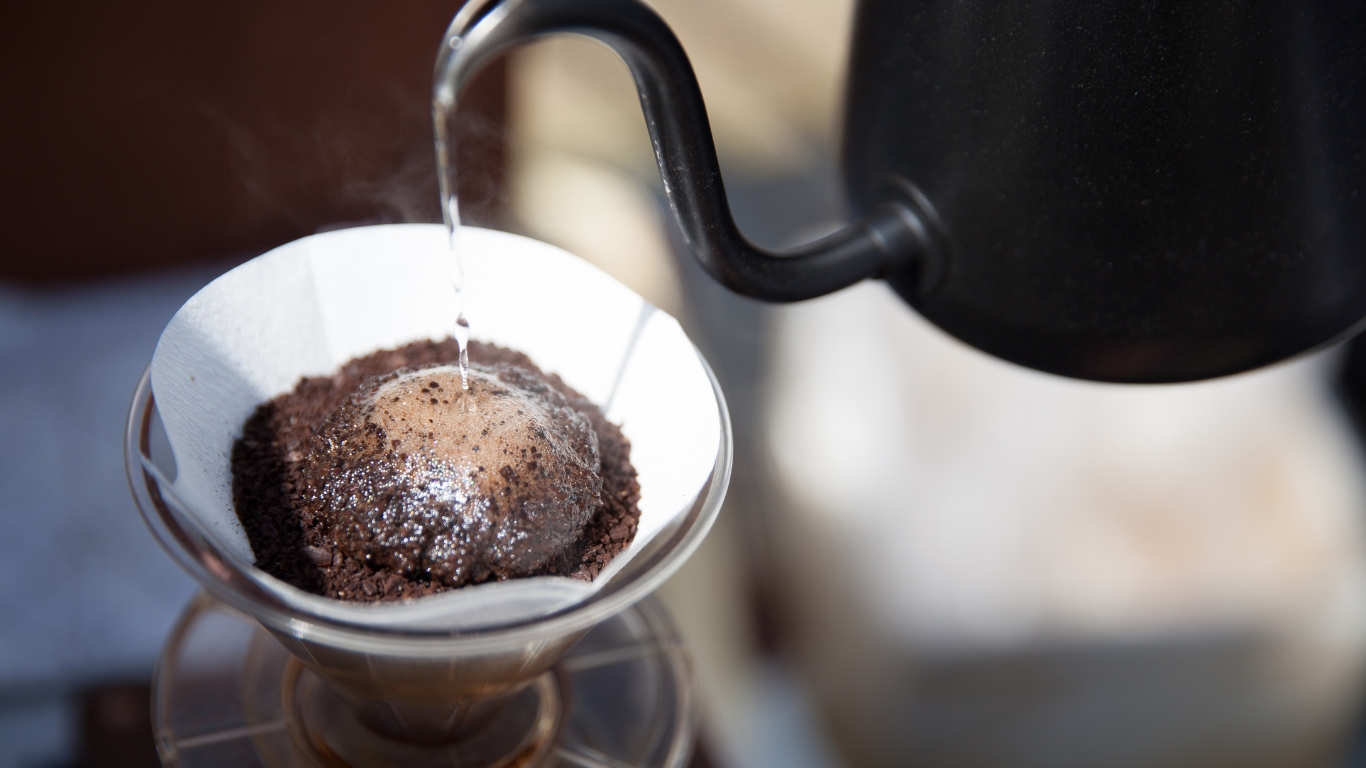
Who should avoid drinking coffee?

There are at least two groups of people who should be a cautious with their coffee consumption or even avoid it completely. These two groups are as followed:
- People with panic or anxiety disorders. Caffeine can reduce sleep quality and at high doses may induce anxiety, so those already affected by anxiety or bipolar disorder should reduce caffeine intake or avoid intake later in the day.
- Pregnant women. Some evidence suggests that higher caffeine intake is associated with lower birth weight and higher pregnancy loss. Even though this evidence is inconclusive, prudence suggests limiting coffee consumption during pregnancy to a maximum of two regular cups a day.
The verdict
In conclusion, drinking moderate amounts of coffee can have beneficial effects on various aspects of health. Due to genetic variations, some people will feel stronger effects of caffeine than others. Everyone should be aware that drinking caffeine can affect their sleep quality. Even if you have no problem falling asleep after drinking coffee in the evenings, the quality of deep sleep might still be affected (5). By drinking 2-5 cups a day (ideally before noon), the health benefits of drinking coffee seem to outweigh the risks, leading to fewer chronic diseases and reduced all-cause mortality.
Watch the video
We already made a short video on this topic. Watch the video below or discover more nutrition-related videos from PAN on our YouTube channel. Don’t forget to hit the subscribe button to follow PAN on YouTube.
Author: Cirus Henn
Cirus Henn is an aspiring physician, nutrition expert and co-founder of the international medical nutrition organisation Physicians Association for Nutrition. For more than 15 years, he has studied nutrition in-depth as a means of enhancing well-being and performance as well as preventing and treating disease. In his lecturing and teaching activities, he inspires an international audience of medical professionals and interested lay people about the potential of healthy nutrition. His intensive examination of scientific findings and his deep-rooted interest in humanity guide his work.
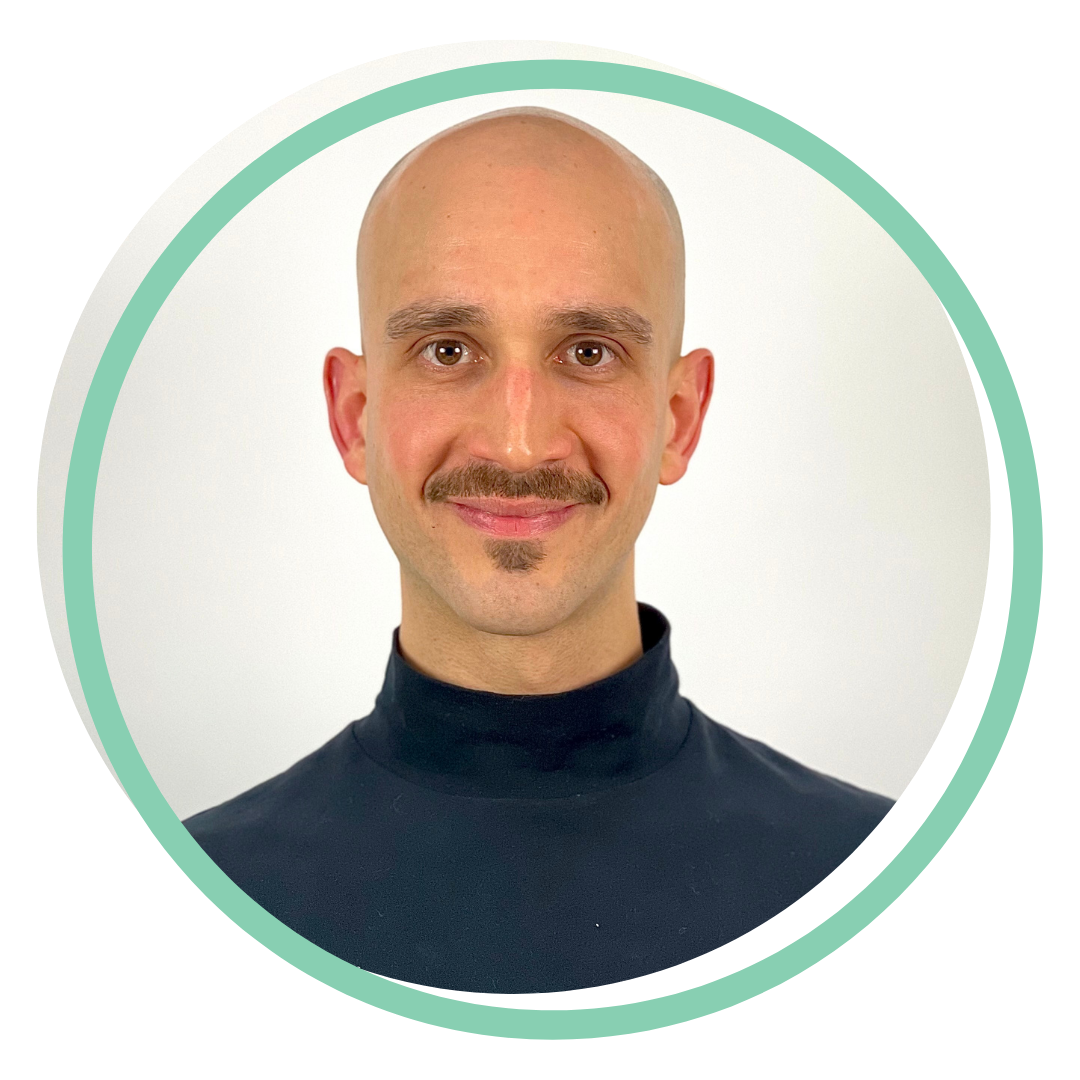
References List:
- Poole R, Ewings S, Parkes J, et al. Misclassification of coffee consumption data and the development of a standardised coffee unit measure BMJ Nutrition, Prevention & Health 2019;2:doi: 10.1136/bmjnph-2018-000013 https://nutrition.bmj.com/content/2/1/11
- van Dam RM, Hu FB, Willett WC. Coffee, Caffeine, and Health. N Engl J Med. 2020 Jul 23;383(4):369-378. doi: 10.1056/NEJMra1816604. PMID: 32706535. https://www.nejm.org/doi/10.1056/NEJMra1816604?url_ver=Z39.88-2003&rfr_id=ori:rid:crossref.org&rfr_dat=cr_pub%20%200pubmed
- Yang A, Palmer AA, de Wit H. Genetics of caffeine consumption and responses to caffeine. Psychopharmacology (Berl). 2010 Aug;211(3):245-57. doi: 10.1007/s00213-010-1900-1. Epub 2010 Jun 9. PMID: 20532872; PMCID: PMC4242593. https://pubmed.ncbi.nlm.nih.gov/20532872/
- Professor Matthew Walker, 2019. “Sleep Expert REVEALS How Caffeine DESTROYS Your Sleep & Productivity! | Matthew Walker” https://www.youtube.com/watch?v=k5BMGmf1ai0
- The Matt Walker Podcast, 2021. “Sleep and caffeine” https://themattwalkerpodcast.buzzsprout.com/1821163/9668350-10-sleep-caffeine-part-1
Recent posts
Alzheimer’s Disease: Decode the Complex Puzzle
Alzheimer’s is a complex puzzle. Learn about genetic factors and how recommending a whole food, plant-based diet can elevate patient care.
A Patient Guide to Outsmarting Alzheimer’s Disease
Learn how dietary choices impact Alzheimer’s risk. Discover measures that can slow progression and reduce its effects.
Easy Plant-Based Swaps
Make your transition to a whole food, plant-based diet stick. Explore delicious and easy plant-based swaps to add more plants to your plate.
Manage Your Rheumatoid Arthritis With Diet
Manage rheumatoid arthritis naturally with a plant-based diet. Reduce inflammation, ease joint pain, and improve your overall health.
Rheumatoid Arthritis and Diet: A Physician’s Guide
Rheumatoid Arthritis and Diet: A Physician’s GuideBy Carlijn Wagenaar, MD and Wendy Walrabenstein, RD from PAN The...
Heart Disease: A Patient Guide to Prevention and Reversal
Discover how to prevent and reverse heart disease. Learn about the advantages of lifestyle changes with a whole food plant-based diet.
Heart Disease Uncovered: A Physician’s Guide
Uncover the secrets to prevent and reverse heart disease. Learn how a whole food plant-based diet can help patients lead a heart-healthy life.
Treating the Silent Killer: Hypertension Insights and Solutions
Explore the power of plant-based diets in managing hypertension. Empower your patients to take control of their blood pressure readings.
Hypertension: A Patient Guide to Reducing High Blood Pressure
Is high blood pressure dangerous? What can you do to manage hypertension and reduce your risk of other related diseases?
Carbohydrates: A Complex or Simple Matter?
Are carbohydrates essential for our health? Do low-carb diets yield greater weight loss? What benefits do whole plant-based foods provide? Find out the answers to these questions and more in this blog post.

Making better physicians
Ready to improve your nutrition knowledge?
Sign up to the PAN Academy and take our free online courses on nutrition science.
Module #2 Basics of Nutrition
Are you interested in digging deeper into the evolution of nutrition science? Wanna upskill your understanding of micro and macronutrients and their roles in the human body? Then, this module is for you!



Making better physicians
Ready to improve your nutrition knowledge?
Sign up to the PAN Academy and take our free online courses on nutrition science.
Module #2 Basics of Nutrition
Are you interested in digging deeper into the evolution of nutrition science? Wanna upskill your understanding of micro and macronutrients and their roles in the human body? Then, this module is for you!

